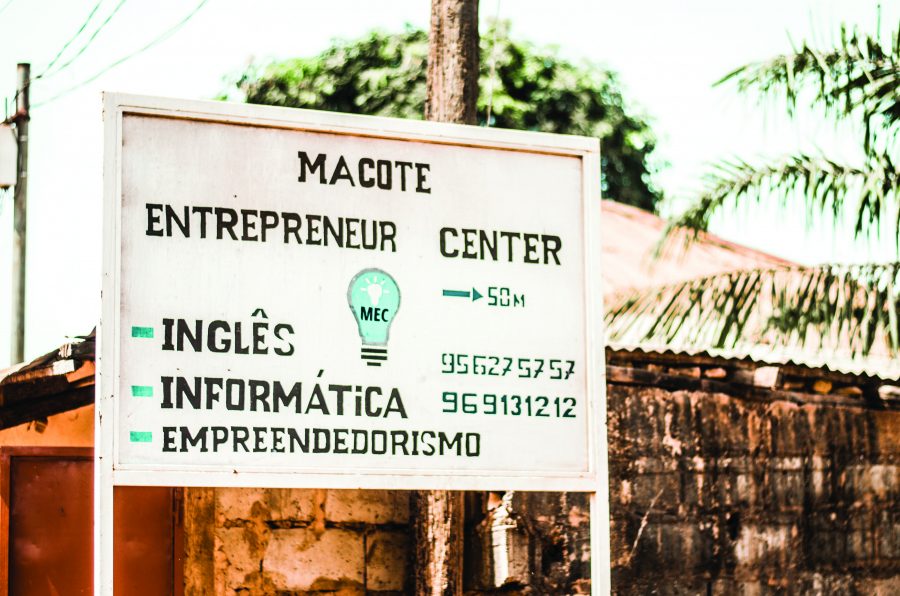Born and raised in Guinea-Bissau, a small country in West Africa, Macote Ambrozio has had to take a more difficult path to success because of the lack of opportunities for improvement offered in a small country with an undeveloped infrastructure. The Portuguese- and Creole-speaking country has a lot of potential to offer to the world. After first going to a university in Brazil, Ambrozio ended up in Utah almost by chance. He enrolled in the University of Utah’s graduate school and graduated with a Master of Science in international affairs and global enterprise. After returning home to Guinea-Bissau, he opened a school in the capital city, Bissau, called the Macote Entrepreneur Center. The school was inaugurated on May 30, 2017. They offer classes in English, computers and entrepreneurship.
Any language is best taught by native speakers, so Ambrozio has partnered with the Hinckley Institute at the U to provide academic support to his school by sending international interns. He has also partnered with Utah Valley University, which also sends interns to the school. You don’t have to apply for an internship at a school in order to volunteer, however. Ambrozio is always looking for people to come and volunteer and even provides room and board to those who make the journey to volunteer in the beautiful country where they are needed. The experience is also immersive into the culture, with opportunities to explore Guinea-Bissau and its surrounding countries.
Ambrozio‘s school itself has made a difference in many people’s lives, such as Jeremias Oruca, who has attended the school for several semesters and is now speaking English at an advanced level. He is working to become an English teacher in his country.
“English is an important language,” Oruca said. “I chose to go to Macote’s school because of the American teachers and to learn the American accent.”
He thinks that learning English from Americans will help him to teach English to other students accurately.
Oruca even had the opportunity to speak at an event for the first anniversary of the school’s opening along with other students in his advanced class. Ambrozio’s school is unique in the area because of the American interns that volunteer to teach there.
In the course of a year, the school has grown a lot. It started out only enrolling adults, but it recently has started classes for children as well. Also, there were only a couple classes in the beginning, but depending on the number of interns there to teach, the number of classes available increases and decreases all throughout the day. Ambrozio also employs some Guinean teachers who are qualified when there aren’t enough American interns to teach. The Guinean teachers also teach the computer and business classes. The adults that tend to enroll in the school are motivated and intelligent in their own spheres. Some of them are young adult students, but some others are lawyers or teachers, or even the dean of a local university. Most of them are trying to improve their quality of life to be able to get a better job or work in the international sphere. The interns teach classes at Ambrozio‘s school, but they also teach English at the parliament building to members of Guinea-Bissau’s parliament and at some businesses in the country’s capital city.
There are four different levels of classes for students. There is a novice/beginner class, a low intermediate class, a high intermediate class and an advanced class. Ambrozio created the curriculum, but he gives his teachers the leeway to teach with their own style and as quickly or slowly as the students need to understand a concept. It is easy for the teachers and students to create a good relationship because of the small class sizes and how grateful and respectful the students are. As a respected member of society, Ambrozio mingles with influential people on a daily basis. Many people have noticed the good that the school has done for their community and have recognized Ambrozio and his school in the news and other television programs on more than one occasion. The U graduate has created a way to impr+9ove the country he loves so much. Along with many other students that have gone to “Macote’s school,” as the locals call it, Jeremias Oruca has a success story: “I can say that I got my job because of the English that I learned in Macote’s school.”


